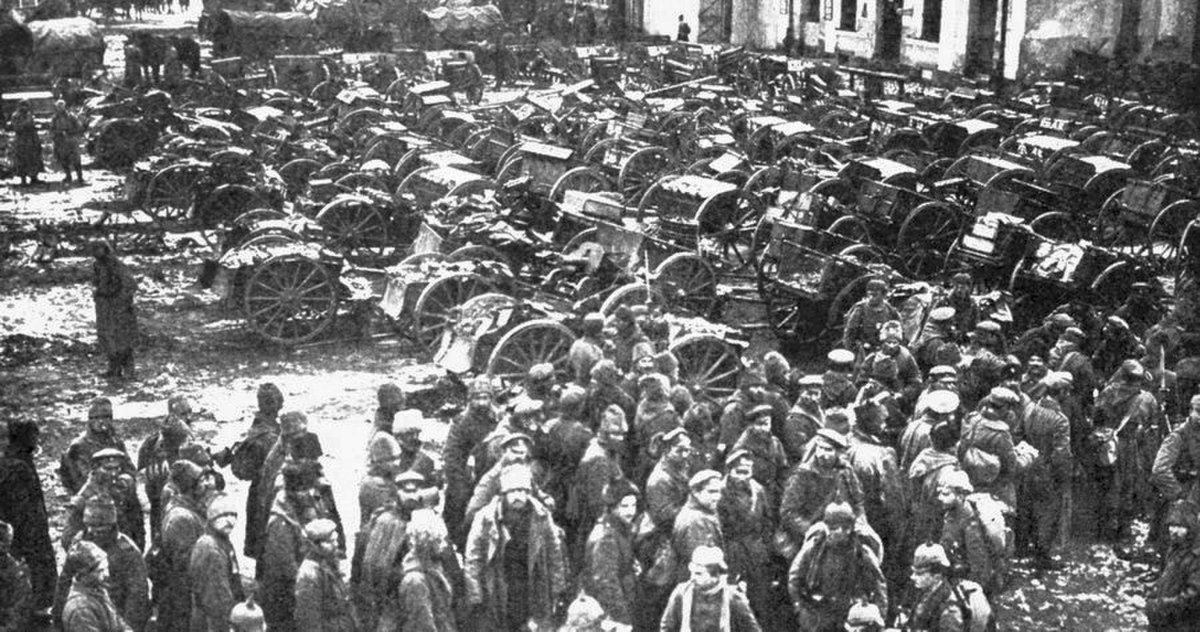
World War I begins
Central EuropeThe outbreak of World War I in August 1914 initially served to quiet the prevalent social and political protests, focusing hostilities against a common external enemy, but this patriotic unity did not last long. As the war dragged on inconclusively, war-weariness gradually took its toll. Russia's first major battle of the war was a disaster; in the 1914 Battle of Tannenberg, over 30,000 Russian troops were killed or wounded and 90,000 captured, while Germany suffered just 12,000 casualties. In the autumn of 1915, Nicholas had taken direct command of the army, personally overseeing Russia's main theatre of war and leaving his ambitious but incapable wife Alexandra in charge of the government. Reports of corruption and incompetence in the Imperial government began to emerge, and the growing influence of Grigori Rasputin in the Imperial family was widely resented.
In 1915, things took a critical turn for the worse when Germany shifted its focus of attack to the Eastern Front. The superior German Army – better led, better trained, and better supplied – was quite effective against the ill-equipped Russian forces, driving the Russians out of Galicia, as well as Russian Poland during the Gorlice–Tarnów Offensive campaign. By the end of October 1916, Russia had lost between 1,600,000 and 1,800,000 soldiers, with an additional 2,000,000 prisoners of war and 1,000,000 missing, all making up a total of nearly 5,000,000 men. These staggering losses played a definite role in the mutinies and revolts that began to occur. In 1916, reports of fraternizing with the enemy began to circulate. Soldiers went hungry, lacked shoes, munitions, and even weapons. Rampant discontent lowered morale, which was further undermined by a series of military defeats. The army quickly ran short of rifles and ammunition (as well as uniforms and food), and by mid-1915, men were being sent to the front bearing no arms. It was hoped that they could equip themselves with arms recovered from fallen soldiers, of both sides, on the battlefields. The soldiers did not feel as if they were valuable, rather they felt as if they were expendable.
The war did not only devastate soldiers. By the end of 1915, there were manifold signs that the economy was breaking down under the heightened strain of wartime demand. The main problems were food shortages and rising prices. Inflation dragged incomes down at an alarmingly rapid rate, and shortages made it difficult for an individual to sustain oneself. Conditions became increasingly difficult to afford food and physically obtain it.
Tsar Nicholas was blamed for all of these crises, and what little support he had left began to crumble. As discontent grew, the State Duma issued a warning to Nicholas in November 1916, stating that, inevitably, a terrible disaster would grip the country unless a constitutional form of government was put in place.
